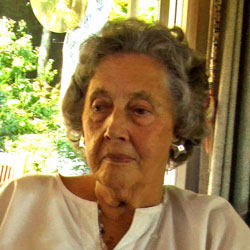Green, how much I want you green.
Great stars of white frost
come with the fish of darkness
that opens the road of dawn.
– Somnambular Ballad (Stephen Spender and G.L. Gili, trs.)
Landscape of crystals
rock salt and icebergs
white trees, white grasses,
hills forged from pale metals
padlock and freeze me
in the Pleistocene.
See my skin wither
heart become brittle
cast as the Snow Queen.
Green, how much I want you green.
Green oak, green ilex
green weeping willow
green grass and green clover
all my lost youth.
Come before springtime
before the brown locust
come like the rain
that blows in the night
and melts to fine dust
great stars of white frost.
Water, sweet water
chortling, running
the chinooks of my childhood
warm wind, the ripple
of icicles dripping
from my frozen palace.
How sweet the water
moonstones and vodka
poured from a chalice
with the fish of darkness.
Come water, come springtime
come my green lover
with a whistle of grass
to call me to clover.
A key for my lock
small flowers for my crown.
The Ice Age is over,
green moss and green lichen
will paint a green lawn
that opens the road of dawn.
Notes on the Poem
In other Poem of the Week selections from P.K. Page's 2010 Griffin Poetry Prize shortlisted Coal and Roses ("The Blue Guitar" and "The Age of Gold"), we observed Page's skillful and innovative uses of the glosa form. Page drew from a diverse range of artists for the opening sequences of each glosa in the collection, which use a four-line sequence or quatrain from the work of another poet. With "Green, How Much I Want You Green", the poet providing the starting point was Federico García Lorca. From Lorca's 1924 poem "Somnambule Ballad" (translated by Stephen Spender and G.L. Gili), Page selected a section capturing strikingly the surrealistic elements that informed significant parts of his work. From there, Page follows the glosa constraints to compose four ten-line stanzas where the tenth line of each stanza is a line from the other poet's passage, used in consecutive order. Glosa rules also dictate that the poet must make the sixth and ninth lines of each stanza rhyme with the borrowed tenth from the other poet. Page is particularly resourceful with "palace", "chalice" and Lorca's "darkness" in the penultimate stanza. Just as Page transmutes one poem and form to another through her gorgeously wielded glosa mastery, so did Page's work inspire further poetic alchemy. In a 2011 tribute to Page in The Malahat Review, poet Kirsteen MacLeod adopts the same Lorca quatrain and gently but tellingly riffs on Page's work in her poem, simply titled "Green". Take some time to enjoy MacLeod's variation and her subtle reinterpretation of the glosa form. It's intriguing and moving to see Page's work as the centerpiece of a beautiful poetic relay, with the baton passed from Lorca to her to MacLeod paying lovely respect.
